On finding ourselves
- Titi

- May 2, 2019
- 4 min read
Updated: May 10, 2019
I thoroughly live by the motto of ‘Never regret anything that made you smile’. Well, when there are a million and one different ways to greet someone in the Yoruba language and all I can do is grin awkwardly while mouthing help me! to my mother, with the hope of her translating for me, I think I will have to bend the rules just a little bit. Not learning to speak Yoruba I can say, hand on heart, is one of my biggest regrets ever. From watching animated conversations, I can tell you however, that Yoruba is such a colourful and poetic language.
A language filled with anecdotes and proverbs which capture our values and beliefs so perfectly. Whenever I hear something like ‘Adìẹ funfun kò mọ ara rẹ̀ l’ágbà’ it fills me with an immense pride of my heritage. A heritage that nobody can take away from me, let alone tell me to please tone down.
There is a video online of Igbo Nigerian actress Uzoamaka Aduba, where she retells a conversation between herself and her mother when she was younger.
The essence of this video perfectly captures my feelings of celebration when I find a book that is so unapologetic in its authenticity as it depicts Lagos life. So when I come across a children’s book that ticks all the boxes and helps me explain to my own children that this is where they are from, I most definitely have to give the it centre-stage on my bookshelf.
A celebration of Lagos
In this post I want to discuss how through the use of colour and page composition the picturebook Baby goes to Market accurately captures the sense of community and ebullience of Lagos life. Written by Atinuke with illustrations by Angela Brooksbank, this book takes you on a journey as Mama and Baby go shopping in a busy West African market.
This book can be enjoyed with our children on many levels. First of all, it is an exciting and colourful numbers-learning book, in which we count all the items Baby receives from the market sellers without Mama’s knowledge. As we read this book to our children, notice their anticipation and excitement build with each page turn. The story creates a bond between Baby, our child and us (the parent/carer reading the story), based on the joke we share in that we all know what is happening before Mama finds out at the end. Meanwhile, those privy to top-down knowledge (prior knowledge) of Lagos, will recognise that this book is a celebration of Lagos life and its people.

I confidently say this story is set in Nigeria, as the market sellers appearing throughout have Yoruba Nigerian names (with the exception of Mr Momo whose name is Hausa, from Northern Nigeria). Furthermore, on close inspection the first double page spread which establishes the market scene shows a Danfo bus in the vivid yellow synonymous of Lagos State public transport. You can read all about the colourful experience of the Lagos Danfo busses here.
Reminiscent of the fauvist art movement, the illustrator’s bold and almost impulsive style lends itself perfectly to the story, with highly saturated colours perfectly embodying the vibrancy of Lagos markets. Full bleed images drawn from a low viewpoint, pull us in by giving us a sense of actively participating in the story as though we are one of Mama’s other children who hasn’t been pictured.
Showing everything from customers haggling, children playing, girls having their hair braided, women gossiping, a lady having a nap with her child on her lap and many more market scenes that are typical of Legosian markets, as the story unfolds you really get a sense of being among all the happenings. All the details and nuances that make the Lagos market experience what it is, are present; even down to the Okada park (moped taxi).

This picturebook has definitely brought back fun memories of my own time spent going to the market on a Lagos Tuk-tuk to buy fresh fruit and veggies in one of Lagos’ busiest markets.
So, what can we learn from this book? My mother did an amazing job of raising me to be confident and proud of where I come from. Now I’m a mother, I hope to be able to do the same for my kids. Raising children in a country where they are part of the minority, the Other, comes with its own difficulties especially in an environment in which at times you are judged purely on social stereotypes. This book is a colourful and evocative celebration of Nigeria and what it means to be Nigerian. A book that should be on every single bookshelf as it accurately portrays life in a different part of the world. Reading this book with our BAME child will not only open up conversation to explain their heritage, but also allows us as parents and carers share a story which portrays our heritage in a positive and optimistic light.
Cited Works
Respect Yourself. Audio recording by Olutayo Odueke. Rebel Films. Olutayo Odueke, May 9, 2019. video.wixstatic.com/video/4249b6_200a9798d1624653ba3ea4bae239ab1a/720p/mp4/file.mp4
Uzo Aduba never liked her name. performance by Uzoamaka Aduba. OloriSuperGal TV, October 13, 2017. YouTube, youtube.com/watch?v=JTPC73SdRkA
Funke. "The Lagos Chronicles: The Travails of the “Danfo” Bus Passenger.” Sassy Funke, DATE?, sassyfunke.com/the-travails-of-the-danfo-bus-passenger/
Atinuke. Baby goes to Market. London, Walker Books, 2017.


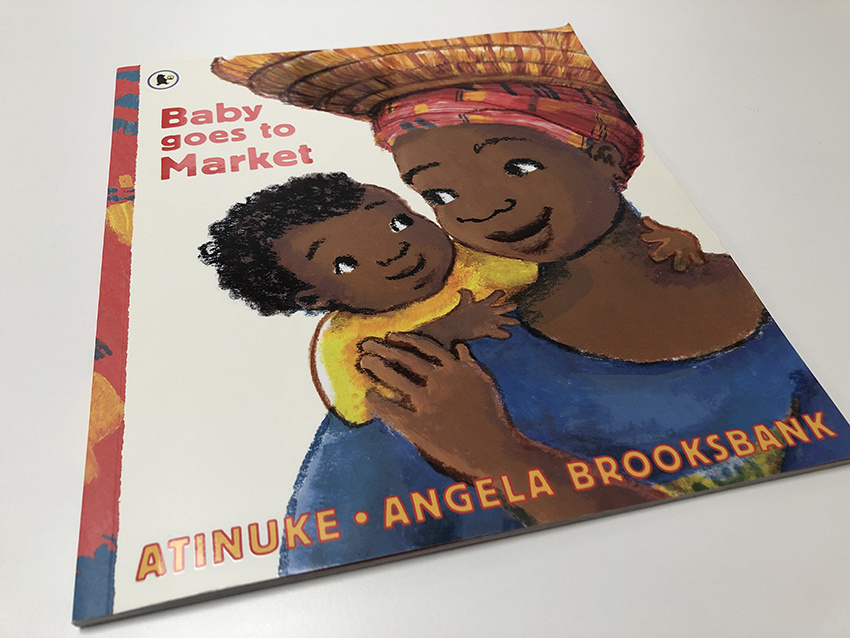

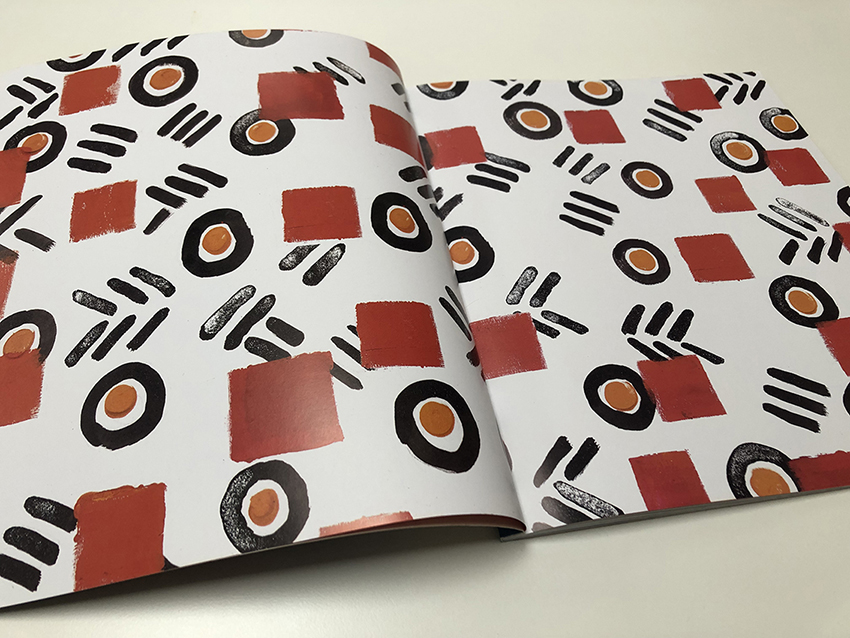

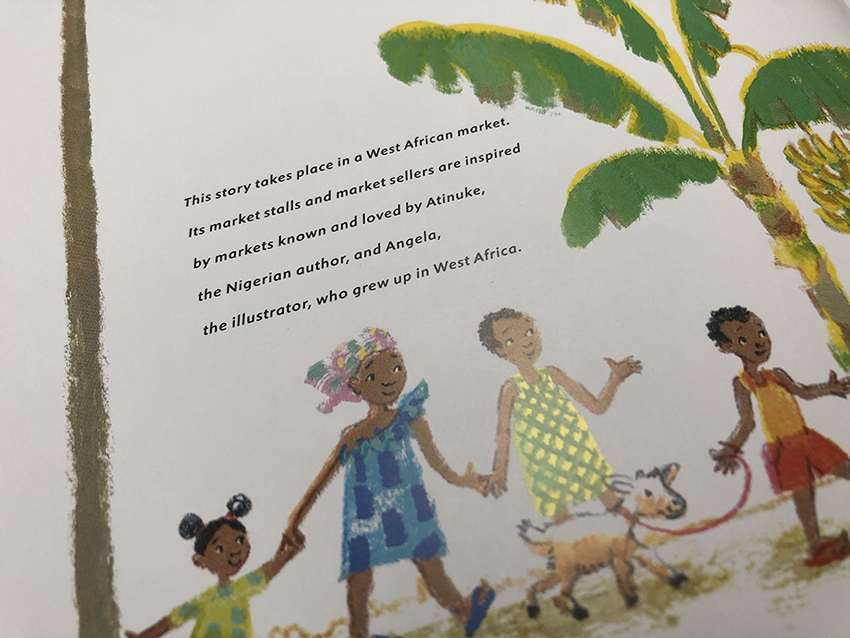







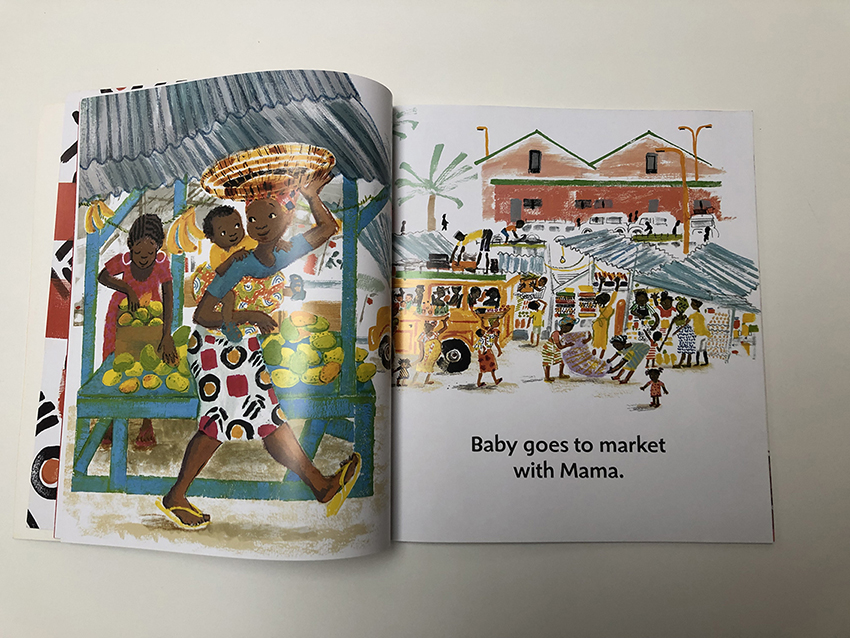

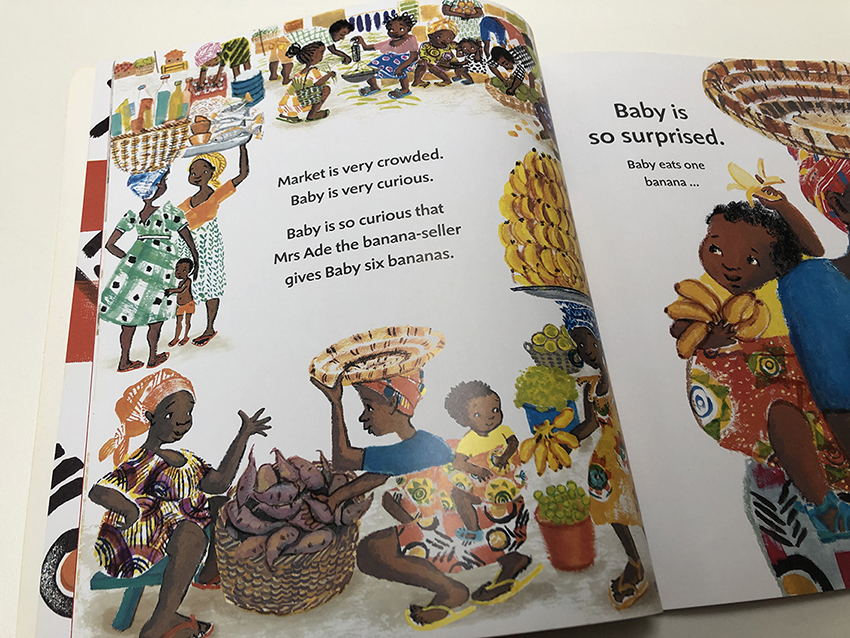





















Comments